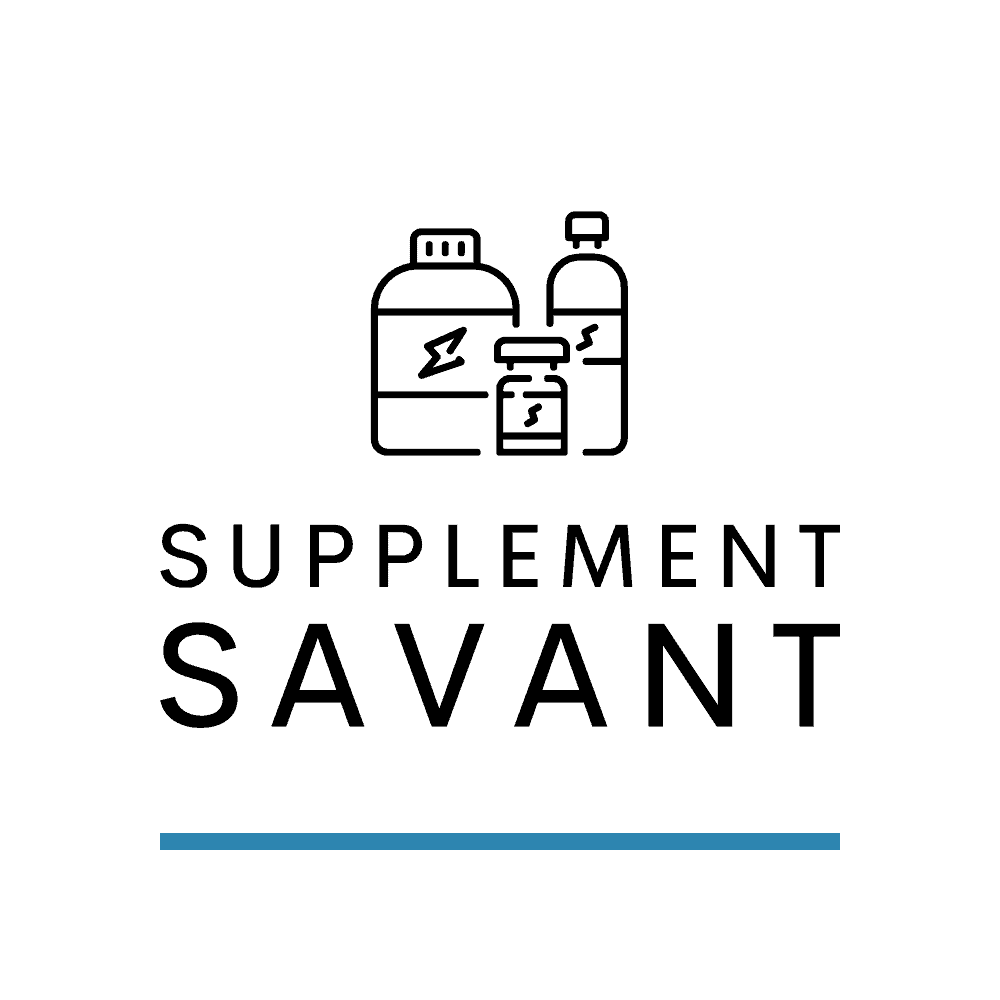After reading several articles about the potential risks of too much homocysteine in the bloodstream, it made me worry about my own health and that of my loved ones.
At first, I was skeptical about the real damage that homocysteine causes; however, as I deciphered more clinical studies, I realized that the danger is real! Homocysteine in the blood and urine can lead to a myriad of health problems.
This made me look for a solution to this problem, which really took a while. Fortunately, I can confidently say that I finally figured out what to do in this situation – betaine.
You might be asking, “What is betaine? I have never heard of it before.”
To answer you, we decided to write this comprehensive guide about the benefits of betaine and how taking supplementing this amino acid could improve your health.
What is Betaine?
Betaine is a naturally-occurring amino acid that you can also find in several food elements. It is approved by the United States Food and Drug Administration (FDA) for the treatment of homocystinuria.
For those of you unfamiliar with this condition, it is a relatively common biological sign characterized by elevated levels of an amino acid named homocysteine in the urine.
So, what’s the big deal if there is too much homocysteine in the urine?
Well, the answer to this question is very complex. However, according to several studies, researchers found an association between high levels of homocysteine and heart disease, muscle issues, osteoporosis (i.e., fragile bones), and ocular problems (i.e., eye disease).
The most common use of betaine supplementation is to lower the levels of homocysteine in the blood. It is also a great way to optimize athletic performance.
How does it work?
Betaine interferes with the metabolism of homocysteine. Since the latter is part of several organs, including the eyes, heart, muscles, and nerves, its concentration can be very consequential.
In short, betaine accelerates the breakdown of homocysteine, which prevents its buildup.
The Benefits of Betaine
1. Promotes cardiovascular health
As we mentioned above, betaine is effective at lowering the levels of homocysteine in the blood. Consequently, it can help reduce your risk of heart disease.
According to one study, researchers found that a high level of homocysteine is a major risk factor for heart disease. Therefore, controlling the concentrations of this amino acid produces the opposite result.
It may surprise you to know that 5% of the adult population has plasma levels of homocysteine above 15 μmol/L, which is the upper limit for normal concentrations.
In a 2013 study, scientists found that taking at least 4 grams of betaine per day lowers the levels of homocysteine in your body. The effects were prominent after 6 weeks of intake.
The exact effect of homocysteine on the heart and vessels present in tissue wall hardening.
2. Fight off inflammation
Researchers found new evidence that demonstrates the anti-inflammatory properties of betaine. As a result, it lowers the risk of numerous medical conditions, including diabetes, Alzheimer’s disease, obesity, cancer, and high blood pressure.
Betaine also interacts with the metabolism of other amino acids that neutralize oxidative stress.
Since oxidative stress and inflammation share several similarities, let us define the former:
What is oxidative stress?
Inside your cells, there are chemicals known as free radicals or reactive oxygen species. The role of these chemicals is to eradicate pathogens (e.g., bacteria, viruses) when captured. However, they do not exert their action in a targeted way. In other words, those same free radicals could wreak havoc on your cells.
For this reason, your body uses a contingency plan to keep them under check. It uses antioxidants to neutralize the action of free radicals when their concentrations go overboard.
Unfortunately, this system is subject to many dysfunctions, and when it occurs, we refer to it as oxidative stress.
Inflammation and oxidative stress often go hand-in-hand, destroying cellular function and interfering with metabolism.
As a result, you can be at risk for an array of ailments.
3. Promotes a bigger lean muscle mass
Despite the conflicting evidence about the effects of betaine supplements on lean muscle mass, animal studies consistently found that betaine promotes lipolysis (i.e., fat burning) and muscle growth.
Today, we have a rich body of evidence that supports these claims, including:
A 2010 study reported muscle hypertrophy and force after taking betaine supplements.
A 2009 study demonstrated improved muscle endurance in active college males after 2 weeks of supplementation.
Another 2013 study concluded a 6-week review by pointing out the improved body composition, arm size, and press work capacity after betaine intake.
4. Improves physical performance
Over the past few years, several studies tested betaine to see its effects on the performance of athletes. In a 2010 study conducted at Connecticut University, researchers found that athletes who take 1.25 grams of betaine two times a day had increased strength by up to 25%. They also confirmed that betaine interferes with the process of muscle growth by stimulating the release of anabolic hormones, such as insulin-like growth factors.
Aside from boosting the production of anabolic hormones, betaine suppresses the release of catabolic hormones, such as cortisol. Over time, it leads to increased power and endurance.
When it comes to strength training, studies found that betaine supplements help athletes who do weight lifting to perform more bench press repetitions. It also improves performance on a stationary bike and sprints.
Finally, betaine lowers the levels of lactate, which may be responsible for delayed-onset muscle soreness and muscle fatigue felt after exercising rigorously.
As a result of all these effects, your performance in the gym will dramatically improve, which eventually leads to higher endurance, better physique, and faster metabolism.
For this reason, many athletes and regular gym-goers are including betaine as a workout supplement.

5. Induces lipolysis (i.e., fat loss)
Based on some clinical research, betaine supplementation seems to modify the way that your body handles nutrients. As a result, your liver and skeletal muscles become more efficient at burning fats without compromising your muscle tissue (a common fear of athletes).
In a 2018 double-blind, randomized, placebo-controlled trial, researchers found that betaine supplements boost the breakdown of fat in female athletes. The daily dose received by participants was 2.5 grams.
Another systematic review analyzed 6 studies with a total of 195 participants.
At the end of the review, the authors concluded that betaine supplementation reduces total body fat percentage without altering lean muscle mass or body mass index. The authors were optimistic about the potential use of betaine in reducing body fat.
6. Helps with detoxification
Betaine supports liver function and aids in the process of detoxification. More specifically, it interferes with lipid metabolism and the removal of toxins from the blood.
When fat accumulates in the liver, it may lead to devastating consequences. Conditions that cause fatty deposition in the liver include diabetes, obesity, and alcohol abuse.
The good news is that betaine facilitates the process of removing these fats, which inadvertently increases your lifespan.
Finally, betaine protects hepatocytes (i.e., liver cells) from the damaging effects of certain chemicals, such as ethanol and tetrachloride. These chemicals are present in some medications, recreational drugs, and pesticides.
7. Aids with digestion
A common form of our favorite supplement is betaine hydrochloride (HCL), which is marketed to help patients with digestion issues. This product lowers the pH of your stomach. Consequently, your digestive juices become more efficient at breaking down foods.
In people with compromised production of stomach acid, taking betaine supplements can do miracles to their symptoms.
In fact, some people started taking betaine HCL before meals to help their digestive system break down food more efficiently. Scientists found positive results in people who suffer from indigestion due to high stomach pH.
You need to keep in mind that optimizing your digestion means having better gut flora. And a better gut flora produces all kinds of beautiful things inside your body.
8. Relieve pain and aches
Several studies suggest that betaine may positively impact muscle soreness and pain.
In one classic study on horses, researchers found that the levels of lactic acid drop faster in horses supplemented with betaine. Note that lactic acid may partially be responsible for the delayed-onset muscle soreness (DOMS) that we feel after working out.
Sources of Betaine
The best food sources of betaine are:
- Wheat Bran and Kamut Wheat Grain
- Bulgar, Amaranth, Rye Grain, and Quinoa
- Spinach, Beets, and Sweet Potatoes
- Turkey Breast, Veal, and Beef

Side Effects of Betaine
The main concern with taking betaine supplements stems from its potential interaction with other drugs and nutrients.
For instance, if you are taking a medication to treat liver disease, heart problems, or kidney stones, you should be careful with this supplement. For safety’s sake, speak with your doctor first.
Additionally, betaine can increase the levels of cholesterol in your blood. After reading the previous sections, you might be asking yourself, “Didn’t he just say that betaine protects from heart disease, and now he’s saying it increases cholesterol levels. What’s going on?”
The answer to your question is dependent on the person who is taking the supplement. If you are a high-risk individual who previously had a heart issue, you may need to take betaine in small doses. Overall, the cholesterol increase is negligible and should not interfere with your decision to take the supplement.
You may also experience some mild digestion problems, including diarrhea, indigestion, and nausea.
Besides these minor side effects, researchers did not find any reported cases of severe side effects.
The Appropriate Dosage of Betaine
The exact dosage of betaine for adults is still a topic of discussion. Depending on your condition, the recommended dose will vary.
For adults, taking 9–15 grams of betaine per day is safe. For individuals with liver problems due to alcohol, diabetes, or obesity, starting with 1–2 grams, three times a day, may be more appropriate.
If you are not into the health benefits of betaine and only looking to optimize your physical performance, you can take 1.5–2 grams per day. It will also improve your body composition and relieve post-exertional soreness.
Pregnant women and breastfeeding mothers should refrain from taking betaine supplements unless authorized by their doctors.
If you have a medical condition (e.g., heart disease, muscle aches, liver disease), and want to take betaine to help you lose fat and gain muscle mass, speak with your doctor first.
You should not give your child a betaine supplement unless your healthcare provider specifically recommends it.
You may want to speak with your primary care physician before taking this supplement to ensure that it is safe for you.
When should you take betaine?
In general, people take betaine, along with vitamins B6, B9 (i.e., folate), and B12. Choosing this combination is ideal to increase the bioavailability of betaine.
Note that you can take the supplement any time of the day.
The available forms are powder, tablets, and capsules.
Takeaway
After addressing all the aspects related to betaine, we hope that you are ready to reap the benefits of this product.
Our mantra is: work out, eat healthy, sleep, betaine, and repeat!
